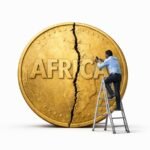Unveiling the Veil: An Overview of Sudan’s Turbulent Path
In the heart of Africa’s vast expanse, where the Blue and White Nile converge to symbolize unity amid diversity, Sudan’s civil war rages as a profound testament to the continent’s enduring battles against division and external meddling. Ignited in April 2023, this conflict embodies the clash between the Sudanese Armed Forces (SAF), under the command of General Abdel Fattah al-Burhan, and the Rapid Support Forces (RSF), led by Mohamed Hamdan Dagalo, or Hemedti. Yet, beneath the surface of this power struggle lies a deeper narrative of ideological resurgence, where the Sudanese Islamic Movement (SIM) and its Islamist allies orchestrate a calculated revival. Drawing from Pan-African ideals of self-determination and resistance to neo-colonial influences, this war challenges Sudan’s quest for a unified, sovereign future. The SIM, with its roots in the Muslim Brotherhood’s vision for an Islamic state, has positioned itself as a guardian of national integrity against perceived foreign puppets, particularly aligning with the SAF to thwart the RSF’s advances. Key figures like Ahmed Haroun, a veteran Islamist indicted for past atrocities yet emblematic of unyielding conviction, exemplify this movement’s tenacity. Haroun’s escape from confinement post-2019 revolution and his subsequent mobilization efforts underscore a broader strategy: leveraging the chaos of war to reclaim political dominance, framing the conflict as a holy defense of Sudan’s Islamic heritage against secular erosion.
Roots in the Soil of Resistance: Tracing Sudan’s Historical Tapestry
Sudan’s story is woven into the fabric of Pan-African resilience, from the ancient kingdoms of Kush that defied imperial incursions to the modern-day revolts against colonial rule. Independence in 1956 promised liberation, but it ushered in cycles of civil unrest, pitting the Arab-Islamic north against the diverse, often marginalized south and peripheries. The SIM emerged in this crucible during the mid-20th century, evolving from a student-led brotherhood into a formidable force advocating for Sharia-based governance as a bulwark against Western secularism. Under Hassan al-Turabi’s intellectual guidance, the movement championed a Pan-Africanist twist on Islamism, portraying it as an indigenous response to colonialism’s lingering shadows, fostering alliances across the continent while enforcing rigid policies at home.
The 1989 coup, masterminded by Omar al-Bashir with SIM backing, marked the zenith of Islamist influence, transforming Sudan into a sanctuary for global jihadists and implementing laws that deepened ethnic rifts, especially in South Kordofan and Blue Nile states. Ahmed Haroun, rising through the ranks as a loyal enforcer, became synonymous with the regime’s iron fist. As Minister of State for Humanitarian Affairs during the Darfur crisis, Haroun oversaw operations that quelled rebellions but at a devastating human cost, earning him international notoriety. His actions reflected the SIM’s dual ethos: a commitment to Islamic unity as a form of African empowerment, yet often at the expense of inclusivity. The 2019 uprising, inspired by Pan-African waves of people power from Algeria to Zimbabwe, toppled Bashir, scattering SIM leaders like Haroun into hiding or exile. However, the 2021 coup by Burhan, infused with Islamist undertones, signaled their subterranean survival. Haroun’s reemergence post-escape highlights the movement’s adaptability, viewing the current war as a divine opportunity to resurrect an Islamic order that aligns with Sudan’s cultural mosaic while resisting foreign domination.
Flames of Division: Dissecting the Present Storm
The war’s outbreak shattered Khartoum’s fragile peace, evolving into a nationwide inferno that echoes Africa’s broader struggles with resource control and identity politics. The SAF and RSF, once uneasy partners in Bashir’s downfall, now vie for supremacy, with battles scarring urban centers and rural heartlands alike. In this maelstrom, the SIM’s imprint is indelible, casting the conflict as a jihad against imperialist proxies, a narrative that resonates with Pan-African sentiments of anti-hegemonic defiance.
Casualties mount in the tens of thousands, with atrocities reminiscent of past genocides staining the land. The SIM’s mobilization has infused the SAF with ideological fervor, recruiting civilians under banners of national salvation. Ahmed Haroun, operating from the shadows, has been pivotal in this effort, coordinating Islamist militias that blend religious zeal with military tactics. His vision extends beyond survival; Haroun advocates for a post-war referendum on leadership, insisting on military stewardship until stability returns, a stance that critiques Western democracy as ill-suited to Africa’s complex realities.
Guardians of the Faith: The Sudanese Islamic Movement’s Pivotal Influence and Ahmed Haroun’s Legacy
At the epicenter of this resurgence stands the Sudanese Islamic Movement, a beacon of Islamist ideology that intertwines Sudan’s spiritual heritage with Pan-African aspirations for autonomous development. Born from the ashes of colonial subjugation, the SIM posits Islam as the unifying force for Africa’s fragmented polities, rejecting secular imports in favor of homegrown governance. In the current war, the movement has supplied thousands of fighters to the SAF, training recruits in camps that echo the disciplined ethos of ancient Nubian warriors. Brigades like al-Baraa Ibn Malik, steeped in SIM doctrine, have turned the tide in crucial engagements, their drones and artillery symbolizing a fusion of faith and modern warfare.
Ahmed Haroun embodies the human face of this resurgence, a figure whose journey from regime insider to wartime strategist encapsulates the SIM’s unyielding spirit. Indicted for orchestrating Darfur’s horrors, Haroun’s post-2019 evasion and regrouping paint him as a symbol of resistance against international hypocrisy—critics argue Western powers overlook their interventions while condemning African leaders. Haroun’s “strategic decision” to support the SAF stems from a belief in reclaiming power through electoral means once the RSF threat dissipates. He envisions a Sudan where Islamists govern via popular mandate, drawing on Pan-African models like Ethiopia’s federalism to accommodate diversity. Yet, this ambition stirs controversy: Haroun’s militias face accusations of excesses, mirroring the very abuses that once defined his tenure. Burhan’s alliance with these forces, while denying overt political ties, relies on Haroun’s organizational prowess, positioning Islamists as indispensable to any victory. This dynamic risks entrenching a theocratic tilt, challenging Sudan’s pluralistic identity, and inviting continental scrutiny from nations wary of radical spillovers.
Tears of the Continent: The Unfolding Humanitarian Catastrophe
Sudan’s agony manifests in a humanitarian abyss that shames the global community, affecting over half the population in a crisis rivaling Africa’s worst famines. Displacement camps in Darfur swell with tales of starvation, while diseases ravage communities stripped of medical aid. Women and children bear the brunt, enduring violations that echo colonial-era exploitations, underscoring the need for Pan-African solidarity in safeguarding vulnerable groups.
The SIM’s role adds layers of complexity: in SAF territories, Islamist oversight of aid distribution often prioritizes loyalists, weaponizing relief as a tool of control. Ahmed Haroun’s influence is evident here, with reports indicating that his networks divert resources to bolster military efforts, framing such actions as necessary for long-term stability. This approach, while rooted in a vision of self-reliant African resilience, exacerbates suffering and hinders international interventions.
Bridges Over Troubled Waters: Endeavors Toward Reconciliation
Efforts to quench the flames have spanned continents, from Saudi Arabia’s Jeddah-mediated dialogues to Geneva’s UN-backed forums, each infused with Pan-African calls for homegrown solutions. The African Union and IGAD have championed inclusive talks, emphasizing civilian voices in recognition of the continent’s democratic awakening.
However, the SIM’s shadow looms large, with Haroun and allies viewing negotiations as traps laid by foreign adversaries. Their insistence on military primacy until threats subside stalls progress, echoing Burhan’s rhetoric of vanquishing conspiracies. Current initiatives, such as South Sudan’s Tumaini process, aim to integrate broader stakeholders; however, Islamist suspicions of RSF legitimacy perpetuate the deadlock.
Horizons of Hope and Hurdles: Navigating Future Pathways
Sudan’s road ahead is fraught with perils that test Pan-African unity: foreign proxies prolong the strife, while ethnic fractures threaten balkanization. The SIM’s ascent, spearheaded by Haroun, poses a core challenge, potentially forging a militarized Islamist state that alienates secular and minority groups.
Economic ruin, compounded by looted assets, demands continental support for reconstruction. Addressing Haroun’s legacy requires demilitarizing politics and ideological reform, fostering a Sudan where Islamism coexists with pluralism. Without this, the nation risks becoming a cautionary tale of unchecked resurgence.
Visions from the Nile: Toward a Renewed African Dawn
In Sudan’s crucible, the Sudanese Islamic Movement and Ahmed Haroun represent a double-edged sword: defenders of cultural authenticity against external erosion, yet architects of division that hinder true liberation. As the war grinds on, embracing Pan-African principles of dialogue and equity offers the sole path to healing. Dismantling entrenched Islamist strongholds while honoring Sudan’s diverse tapestry could yet birth a sovereign, united nation, echoing the Nile’s eternal flow toward renewal.











